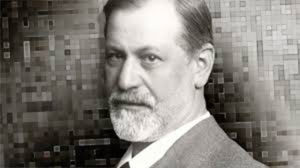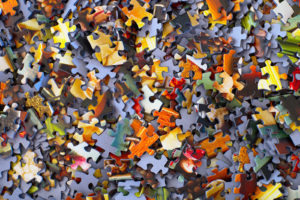Le rêve du neurobiologiste
Résumé
Ce texte tente à partir de la lecture de plusieurs ouvrages consacrés aux Neurosciences, de montrer tout l'intérêt d'une confrontation entre la psychanalyse et ces sciences qui ont connu un développement considérable ces dernières années. Ce premier texte est consacré au problème du rêve. La mise en tension dialectique de ce terme cher à la psychanalyse avec celui, plus neurobiologique, de sommeil paradoxal, fait apparaître bien des questions sur les rapports possibles entre ces deux entités ; cette mise en rapport dialectique permet au fond de mieux cerner et définir les champs et compétences des diverses disciplines concernées par le fait psychique ; ce qui ne peut, à terme, que constituer un avantage pour chacune d'elle. De cette confrontation, la psychanalyse devrait aussi pouvoir remettre en question un certain nombre de présupposés issus des conceptions scientifiques du 19e siècle ; il faut ici penser à l'hypothèse économique de Freud qui est souvent source de malentendus entre les psychanalystes et les neuro-scientifiques. La confrontation entre les hypothèses freudiennes du rêve comme gardien du sommeil et celles des neurosciences issues des hypothèses informatiques, est particulièrement stimulante.
Samenvatting
De neurowetenschappen kenden de laatste jaren een aanzienlijke ontwikkeling. Bij lezing van verschil ende werken uit dit gebied, komt de auteur tot de conclusie dat een confrontatie tussen de psychoanalyse en deze neurowetenschappen zeer belangrijk kan zijn.
Een eerste bijdrage is gewijd aan de drom. Deze voor een psychoanalyticus zo dierbare term wordt getoetst aan de meer neurobiologische term van de paradoxale slaap. Daarbij duiken vragen naar mogelijke verbanden op tussen deze twee.
Het dialectisch in verband brengen van deze twee gehelen laat fundamenteel een betere omschrijving en bepaling toe van het gebied dat ze bestrijken en van de deskundige kennis waarop de verschillende disciplines die zich met de psychische gegevens bezig houden, betrekking hebben. Uiteindelijk kan dit alleen maar voor beiden voordelig zijn.
Vanuit deze confrontatie zou de psychoanalyse een zeker aantal vooronderstellingen die uit de wetenschappelijke opvattingen van de negentiende eeuw stammen, terug in vraag moeten kunnen stellen.
Hierbij denken we aan de economische hypothese van Freud. Deze is dikwijls een bron van misverstand tussen de psychoanalytici en de neurowetenschappers.
De confrontatie tussen de freudiaanse hypothesen over de droom als bewaker van de slaap en de hypothesen van de neurowetenschappen, afkomstig uit de informatica, werkt bizonder stimulerend
Summary
Starting from a reading of several works dealing with the neurosciences, this text tries to show the great interest of a confrontation between psychoanalysis and these sciences which have known such a considerable development during recent years. This first text is devoted to the problem of the dream. Activating a dialectic between this term dear to psychoanalysis and the more neurobiological one of paradoxal sleep certainly raises questions about the relations between these two entities : linking them dialectically permits us to delineate and define by and large the spheres of activity and the competences of the different disciplines with which that which is psychic is concerned : this can only constitute in the long run an advantage for each of them. From this confrontation psychoanalysis must also be able to question a certain number of presuppositions issuing from some 19th Century scientific conceptions ; here one must think of Freud's economic hypothesis, so often the source of misunderstandings between psychoanalysts and neuroscientists. The confrontation between the Freudian hypotheses of the dream as guardian of sleep and those of the neuroscientists issuing from computer science is particularly stimulating.





